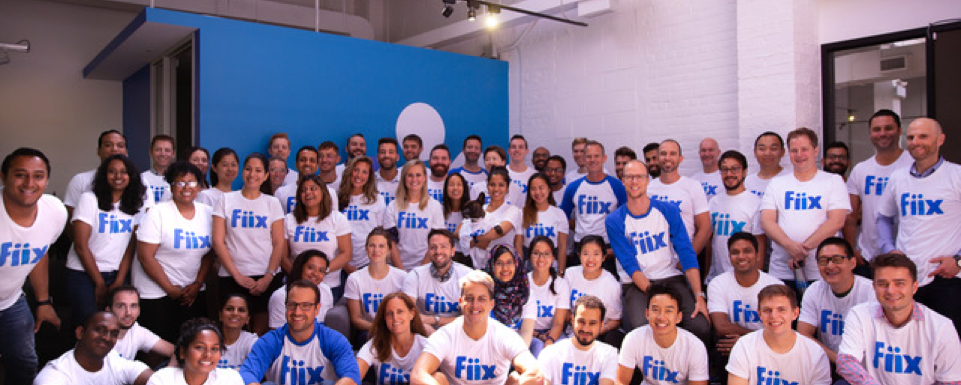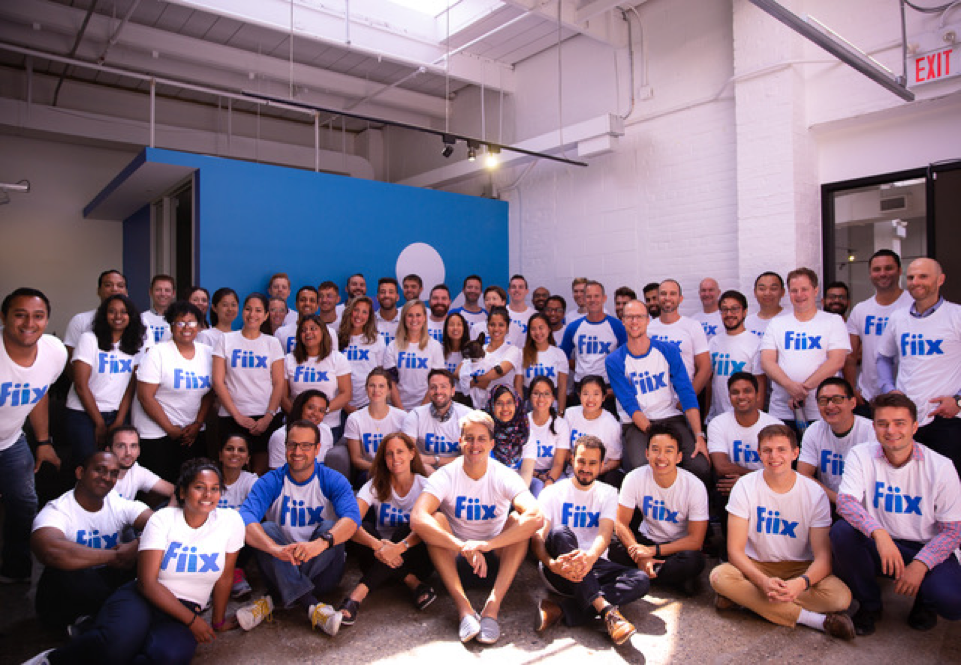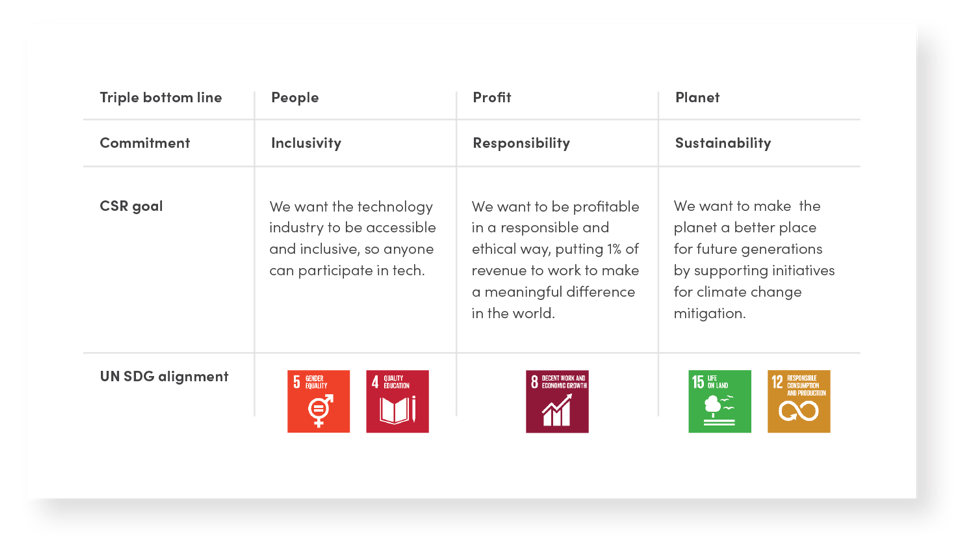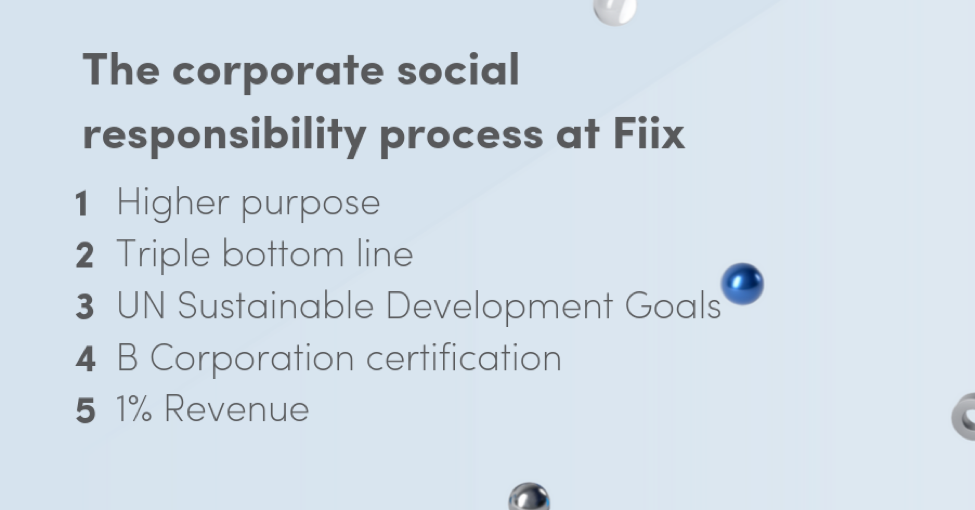Tech for Good: Introducing CSR into an Early-Stage Company


Tech start-ups have the agility and intellectual capacity to tackle some of the world’s greatest challenges. Katie Allen sheds light on how she helped Fiix Software incorporate CSR into their operations from the get-go, and how that’s paid off.
“The uncertainty inherent in the evolution and development of technology creates the opportunity for all stakeholders to integrate the wisdom and lessons learned from history, philosophy and literature to ensure ethical decision making as the future unfolds,” says the Tech for Good declaration, a Canadian set of guiding principles that all aspiring organizations can follow to create and use technology for the good of humanity and of the planet that sustains us.
This declaration is unique to Canada and its timing couldn’t be more opportune. The tech industry in Toronto is absolutely booming. As the third-largest tech sector in North America, employing over 400,000 people, there is no sign of slowing down any time soon. We know that businesses wield enormous power to affect change – for better or worse – and tech start-ups in particular have the agility and intellectual capital to tackle some of the world’s greatest challenges.
With so many new companies starting from the ground up, entrepreneurs have the opportunity to put measures in place that ensure they operate in an ethical, inclusive, and sustainable manner to create products that contribute to a clean economy. And that’s exactly what we did here at Fiix.
With less than 20 employees, the CEO and I embarked on a path that very few had travelled. We cemented corporate social responsibility (CSR) into the foundation of our business and measured our success against the triple bottom line of people, planet, and profit. Three and a half years and 150 employees later, we have met many challenges, learned a few things, and hope to inspire other companies in our industry to do the same.

How did we do it?
Due to the nature of CSR and its impact on business operations, governance, budget, and transparency, getting leadership support is critical. Without CEO and board buy-in, programming will stall, making it incredibly challenging to implement CSR effectively. Enlightened leadership is key to a successful program.
From the beginning, we developed a higher purpose that embodied why we exist as a corporation: to create a more sustainable world. At Fiix, we create easy to use maintenance management software that helps organizations track, schedule, and organize their maintenance activities. Maintenance is a key contributor to the circular economy, helping to create a more sustainable world. Effective maintenance management helps organizations reduce inefficiencies, waste, energy, and spending by keeping assets running at peak condition. It also keeps workers and the public safe by effectively monitoring and implementing health and safety standards.
Using profit as a sole indicator of success was not enough – we also needed to measure and report on our social and environmental impact. To accomplish this, Fiix adopted a triple bottom line of people, planet, and profit, which we report on to our board of directors and in an annual report available on our website.

Under our triple bottom line, we identified three commitments that reflect what we do as a company while addressing some of the world’s greatest problems. We then committed our company to three accompanying CSR goals.
To address these goals in a way that would create unity between our efforts and the international community, we aligned ourselves with the UN Sustainable Development Goals (SDGs). With the help of our customers and our employees, we narrowed our focus to 5 goals: gender equality, quality education, decent work and economic growth, responsible consumption and production, and life on land.
Once we had a framework in place, we needed a roadmap to help us get there. This is where our B Corp certification came into play. We used the B Impact Assessment to guide our efforts and provide a scorecard of how we could improve. It also kept us transparent by showcasing our successes and shortcomings. Changing our articles of amendment to reflect B Corp has kept us accountable to these commitments.
At Fiix, a financial commitment of 1% of sales revenue was allocated to fund CSR initiatives. This ensures that the program will continue to grow and expand in conjunction with corporate growth.

What impact did this have?
The impact of our programming is multi-faceted. At the human resources level, we provide diversity & inclusion training, a robust health and wellness program, continuing education funding, profit-sharing and more. In our community, we have contributed over $30,000 to preserve habitat and environmental restoration, over $42,000 to help teach kids and diverse communities to code, and $10,000 to support innovation and entrepreneurship. Each employee has 16 hours paid time off to volunteer, having contributed over 2,500 volunteer hours in the past 3 years. Internally, we ensure that the carbon emissions associated with our head office, hosted servers, and employee travel are offset by a sequestration project. The impact stretches far beyond the four walls of Fiix, all of which are detailed in an annual report.
Building the business case
Beyond the social and environmental impact of our CSR activities, we’ve measured the ways in which it has benefitted us financially.
Talent attraction and retention
Because we integrated CSR at an early stage, every new employee has been hired with the understanding that this is fundamentally who we are. This has solidified our values into every area of the organization and even attracted new talent as a result. 85% of new employees credit our CSR program with influencing their decision to work at Fiix and our engagement score has been maintained at a solid 8.4/10 surpassing the SaaS industry-standard of 7.2/10.
Brand image and reputation
We reached out to our customers in order to understand how CSR was impacting our brand image. We found that on average, 20% of customers were influenced to purchase our product because of our CSR initiatives and 74% agree that companies should engage in social and environmental initiatives as well as a profit.
Annual recurring revenue
The most striking data to support the business case, was that on average, 6% of annual recurring revenue can be attributed to CSR. With a 1% financial commitment, this is a return on investment of 5%. As it turns out, CSR is good for business.
The tech sector is in a unique position to contribute to a clean and inclusive economy. Their resources and adaptability make them a powerful entity that can, and should, be used for advancing the wellbeing of people and the planet, while still maintaining growth and profitability. Our experience at Fiix is one that can be replicated. Corporate social responsibility is not an easy path, nor a clear one, but it has proven to have a positive impact on our social and environmental performance, as well as attracting and retaining talent, improving brand image, and increasing revenue. So who’s with us?

















